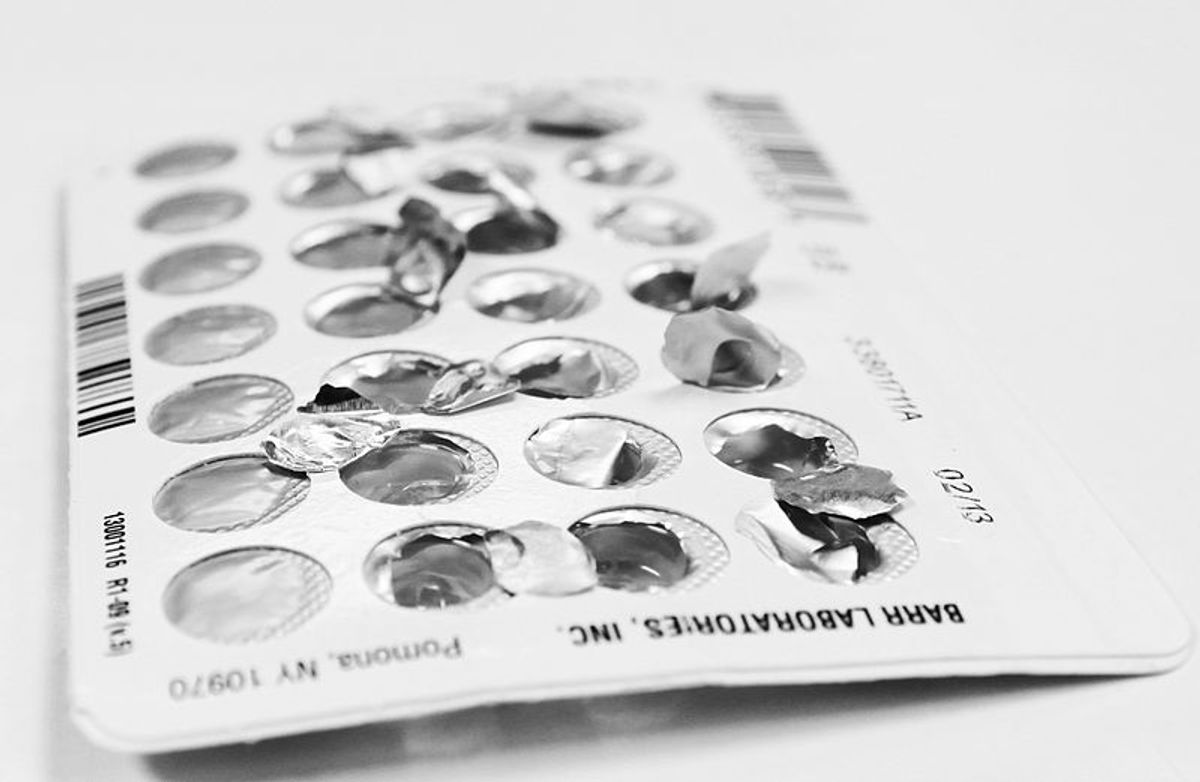Unintended teen pregnancy occurs at a shameful rate in the United States, with any number of reasons -- or any combination of them -- to blame. Abstinence-only sex education programs prevail in much of the country. Politicians aren't convinced that contraception is basic healthcare, or that it should be widely and easily accessible. Teens face shame and stigma for having sex in the first place, and don't have space to get the knowledge and birth control they need. So, sometimes, they just don't use it.
And there are marked demographic differences in which teens don't use birth control, according to a new study in the Journal of Pediatrics. Researchers at the University of Michigan made an interesting discovery about the relationship between weight and contraceptive use during a survey of 900 young women aged 18 to 19, which confirmed their hypothesis: Obese young women were significantly less likely to use any form of birth control than their "normal" weight peers -- especially the kind of birth control that requires a doctor's prescription.
While normal weight teens reported using contraception 91 percent of the time they were involved with the study, obese teens said they used it just 84 percent of the time; perhaps unsurprisingly, the latter group also reported higher rates of unintended pregnancy, and more had given birth at least once already. Tammy Chang, the study's lead researcher, believes the basis for the disparity include some of the more obvious explanations -- such as the stigma and subsequent self-esteem issues associated with obesity -- as well as more nuanced socioeconomic issues.
“Obese adolescents may feel less comfortable asking clinicians for contraceptives or obtaining contraception from a pharmacy or over-the-counter retailer," Chang told Fusion. “We also don’t know whether physicians treat obese adolescents differently than normal weight adolescents in regards to sexual health care."
But the fact that obese teens might be more likely to struggle socially with obtaining physician-prescribed contraception, it doesn't explain everything. Chang and her colleagues also found that young women who were obese relied more on condoms, which are much more widely available and often free at schools and clinics. Researchers think that might speak more to economic constraints and not so much to our fat-shaming culture -- and that it might also be intimately linked to the circumstances that increase a person's chances of becoming obese in the first place.
Chang writes that "lower levels of contraceptive use may also result from the same socioeconomic barriers and limited health literacy that facilitated development of obesity," which makes sense: The resources that make certain socioeconomic groups less likely to have high rates of obesity are also the same resources that make them more likely to be able to access healthcare and obtain free or low-cost birth control. Essentially, it seems inequality might be to blame -- and it's putting a specific group of young people at risk.

Shares